cherry blossoms at night
Cherry Blossoms at Night: How to Enjoy Them!

Thalia Harris
Posted on April 05, 2024
Share:
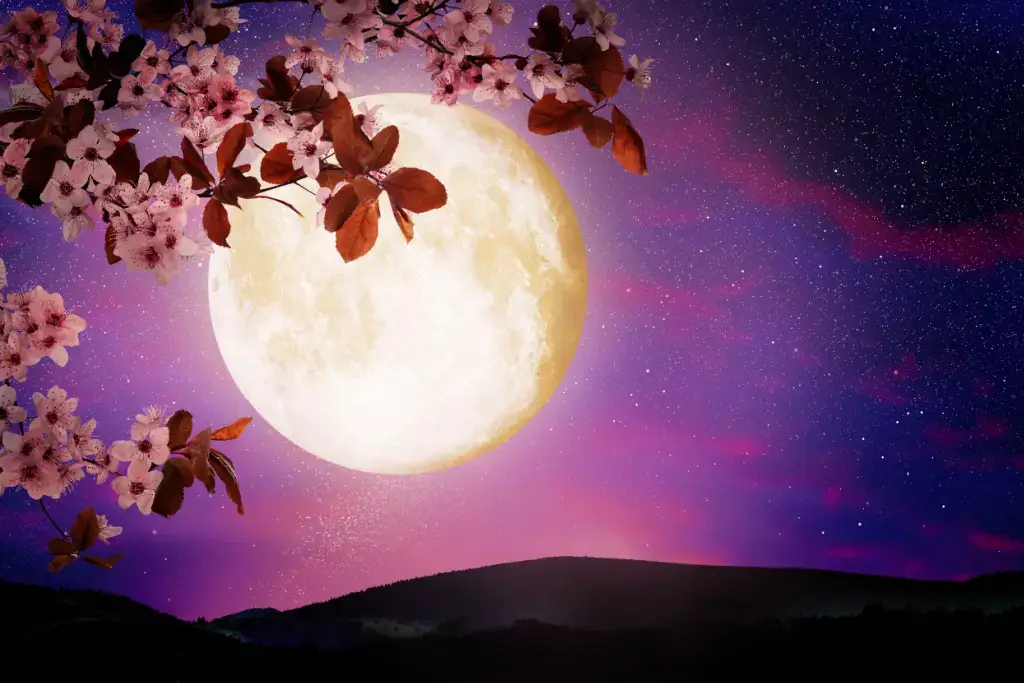
Seeing cherry blossoms at night is a particular experience that turns regular moments into something unique. It shows us how beautiful and fleeting life can be, making us feel happy and at peace. Let’s look at what’s in store for us this season.
Where can I see beautiful cherry blossoms at night?
In Japan, people love to watch cherry blossoms, and you can see them light up beautifully at night in many places. An incredible spot to see this is Fukuoka Castle in Maizuru Park, Fukuoka. The cherry trees next to the stone walls shine bright during the cherry blossom festival, which looks fantastic.
Maruyama Park in Kyoto is another excellent place. It has over 800 cherry trees, including a unique weeping cherry tree that looks stunning when lit up at night. The park feels like a magical land with these glowing trees, making it a perfect spot for hanami when people enjoy looking at cherry blossoms.
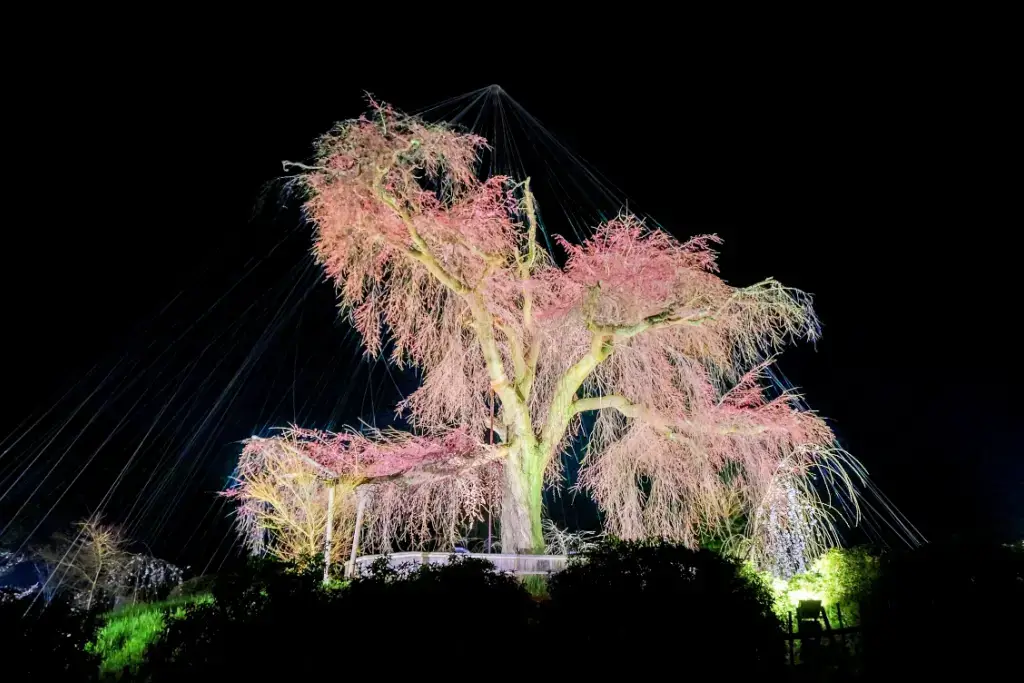
In Nara, the area around Koriyama Castle has cherry trees that light up at night, with the castle making the view even more magical. In Tokyo, the Meguro River, especially in Nakameguro, has cherry trees lit up, making for a beautiful walk.
Other places include Ueno Park in Tokyo, where lanterns light up the cherry blossoms near the temple and lake. There’s also Hirosaki Castle in Aomori, which has a big cherry blossom festival at night, and the castle and trees are all lit up.
Lastly, Himeji Castle in Hyogo is a great place to visit during the Himeji Nighttime Cherry Blossom Viewing Festival. The West Bailey Garden lights up at night, so you can party under the cherry blossoms. These places are just a few examples of where you can see cherry blossoms lit up at night in Japan, including Ehime Prefecture. The lights and festive mood make it an unforgettable way to see the beauty of Japanese culture and nature.
What kind of food can I enjoy during this time of year?
Besides the usual snacks people eat while watching cherry blossoms, like sakura mochi, rice balls, and dango, Japan has a bunch of other tasty spring treats to try. For example, Saga Prefecture, by the coast, is famous for its excellent seafood that tastes great with the light flavors of spring. You can try grilled seabream, raw fish slices (sashimi), and seafood tempura from fish caught there. Thanks to its pleasant weather and sea life, Saga is a great place to try seafood while enjoying the cherry blossoms.
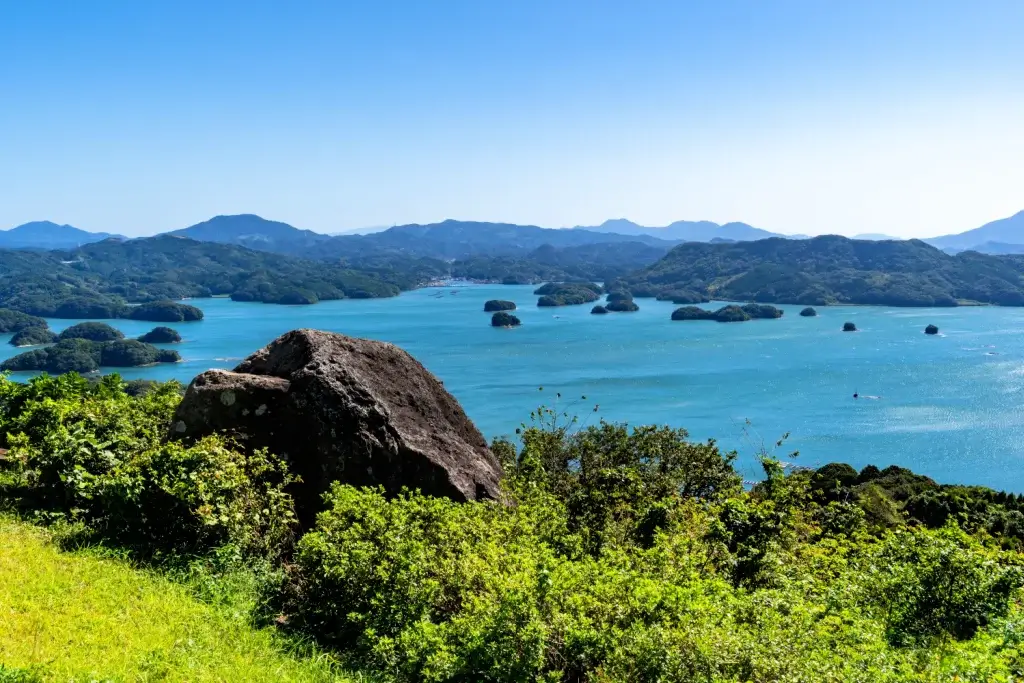
Another excellent spring snack is genkotsu-ame, a hard candy made with black sesame and roasted soybean flour. There’s also houten, a type of candy with a karinto filling. These little crunchy treats are perfect for munching on while looking at the beautiful cherry blossoms.
Is there any significant symbolism of cherry blossoms?
In Japan, cherry blossoms, or sakura, mean a lot, especially to the samurai, the historical warrior class. To these warriors, the short-lived beauty of sakura flowers showed how life can be brief. Like how the flowers quickly bloom and then fall, a samurai understood that their life could suddenly end in battle. The sakura reminded them to live with honor, honesty, and courage.
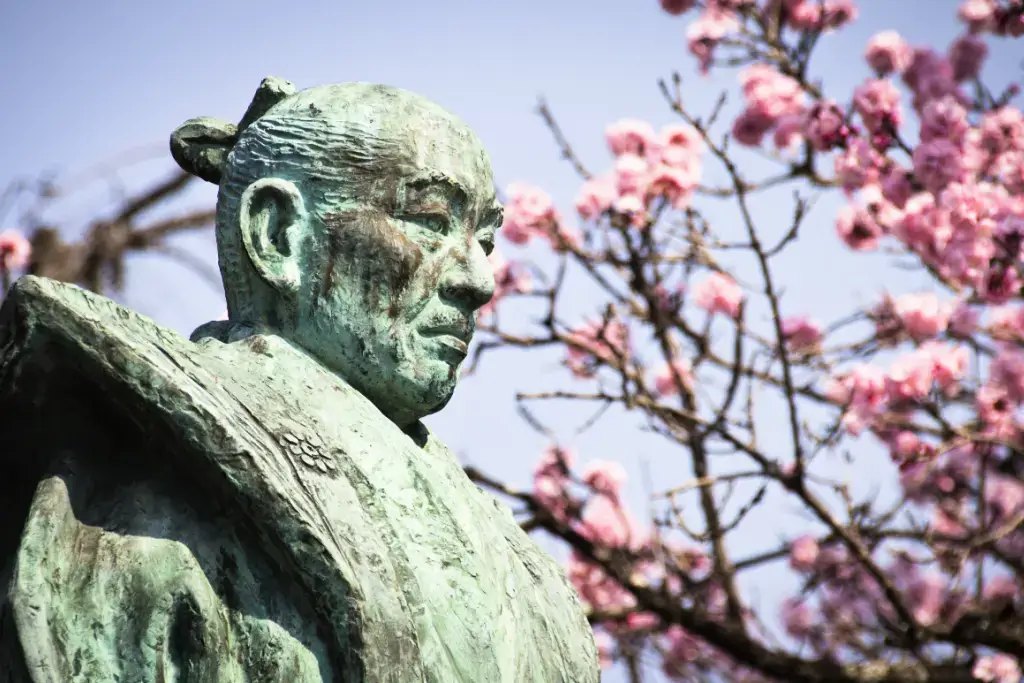
Samurai saw their reflection in the sakura, living by the Bushido code, which is all about loyalty, self-control, and making peace with their death. The beauty and short life of the blossoms encouraged samurai to face their end with grace, just like how the flowers gently fall when their time comes.
Beyond these deep thoughts, cherry blossoms were spiritually significant, too. In Shinto, Japan’s original religion, sakura were considered a special gift from the spirits living in the trees. Watching the cherry blossoms allowed samurai to feel closer to these divine spirits and find peace in nature. The connection between sakura and the samurai’s way of thinking greatly impacted their lives and how they saw the world.
Are you looking for excellent snacks while enjoying cherry blossoms at night? Check out Sakuraco! Sakuraco delivers traditional Japanese snacks, teas, and sweets from local Japanese makers directly to your door.
Are there any other notable flowers in Japan?
While everyone knows about the famous cherry blossom, or sakura, in Japan, there’s another essential flower called the hibiscus. This plant is originally from East Asia and is pretty eye-catching with its big, colorful flowers that can be red, pink, orange, yellow, or purple. These flowers have a relaxed, tropical look with bright orange-tipped red parts in the middle.
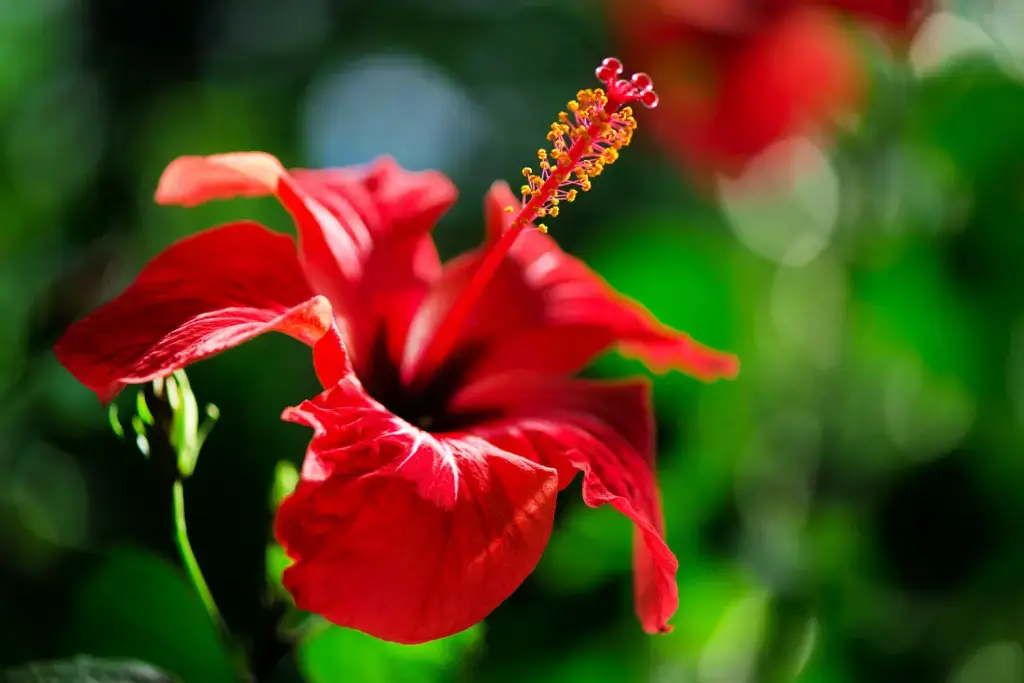
Besides looking beautiful, the hibiscus is something special in Japan. It represents being welcoming and having a kind heart, so it’s often used in decorations and gifts. Its ability to handle salty air also ties it to Japan’s coastal areas. Even though it’s not as everywhere as the sakura, the Hibiscus rosa-sinensis is still a unique and loved flower in Japan. It shows the variety of nature there and how important flowers can be in Japanese culture.
Why should I enjoy cherry blossoms at night?
Seeing cherry blossoms at night is a unique experience because it’s so calm and peaceful. While the daytime brings big crowds eager to see the pretty flowers, things are quiet at night. This gives you a chance to soak in the quiet, maybe hearing leaves rustle or crickets chirp, and see the little details of the flowers you might not catch when the sun’s out.
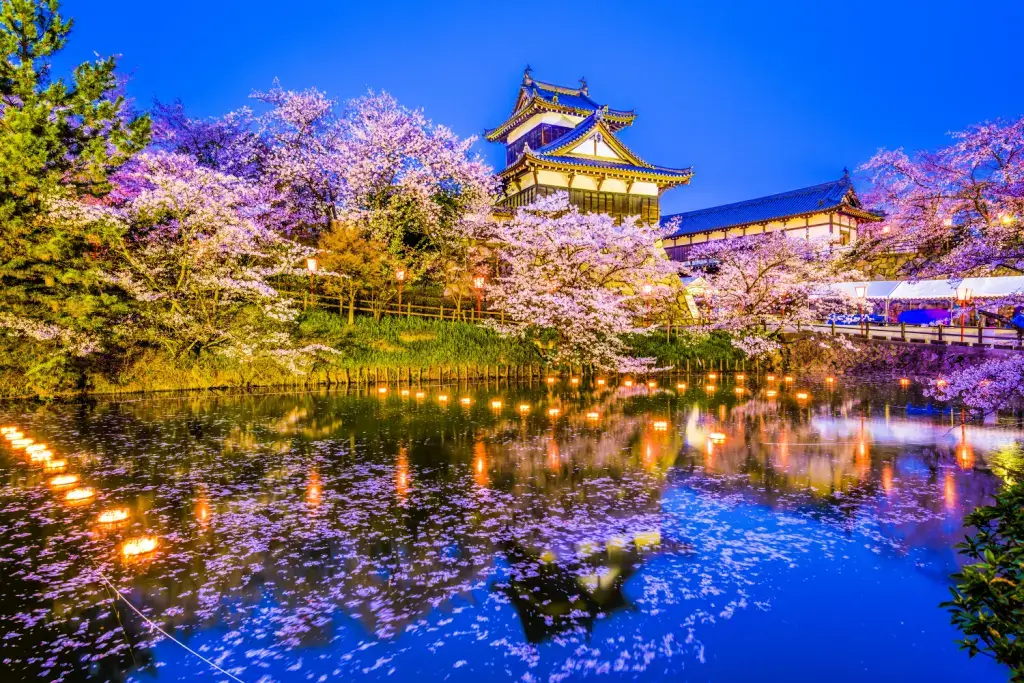
In Japan, there are even fabulous nighttime parties called festivals during cherry blossom season. These festivals have food stands, live music, and lots of fun stuff to do, all celebrating the cherry blossoms. Whether you want a quiet moment to yourself or to have fun with others, checking out the cherry blossoms when they’re lit up at night is something you won’t forget. Have you ever enjoyed cherry blossoms at night before? Let us know in the comments below!
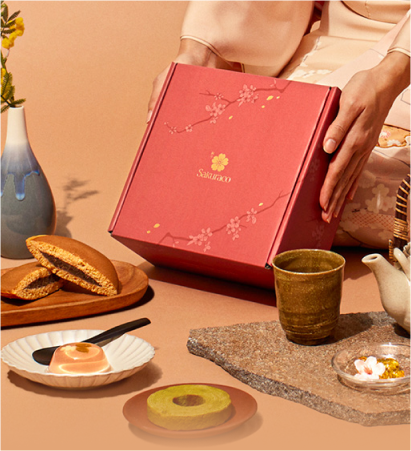
Discover authentic flavors with Sakuraco
Get Sakuraco 

Discover authentic flavors with Sakuraco
Get Sakuraco 
Related Articles
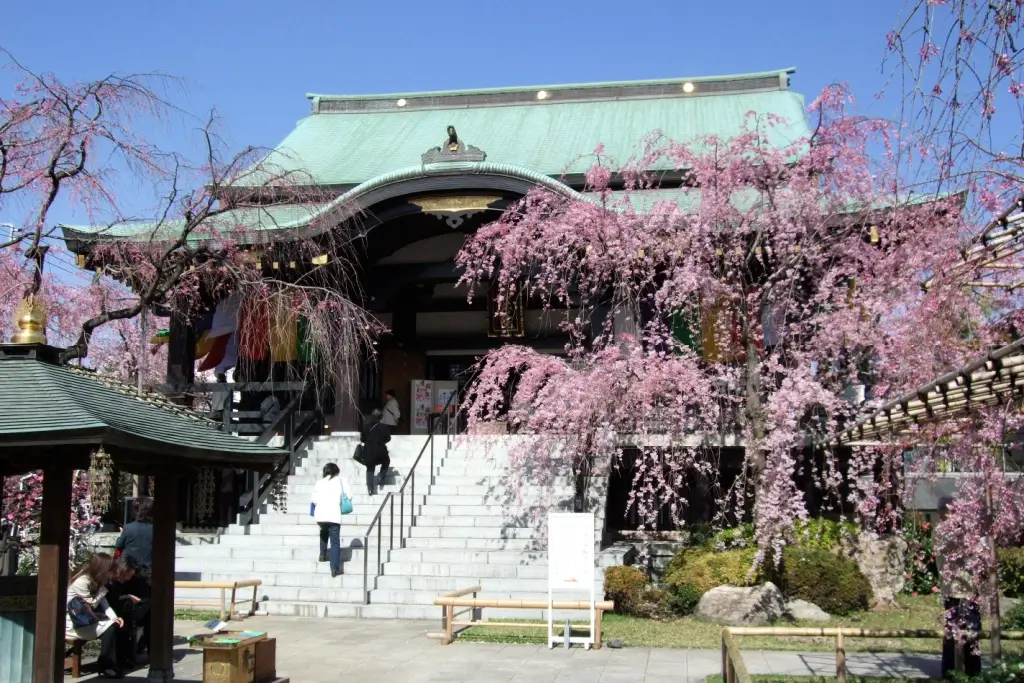
Japanese Castles and More Wonderful Sights in Itabashi!
Japanese castles are reminders of Japan’s history and beautiful examples of the country’s architecture. Let’s check out Itabashi, which is home to some castle ruins.
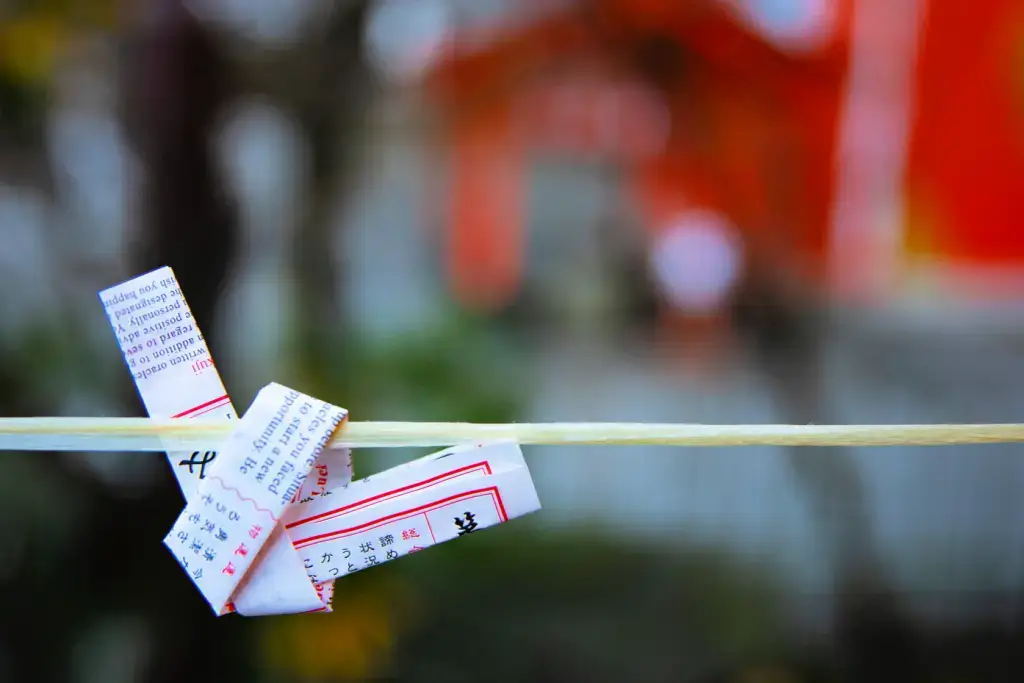
Omikuji: The New Year’s Fortune
Omikuji, which means “sacred lot”, is a popular and traditional way to learn about your fortune in Japan. You can find it at Shinto shrines and Buddhist temples nationwide.
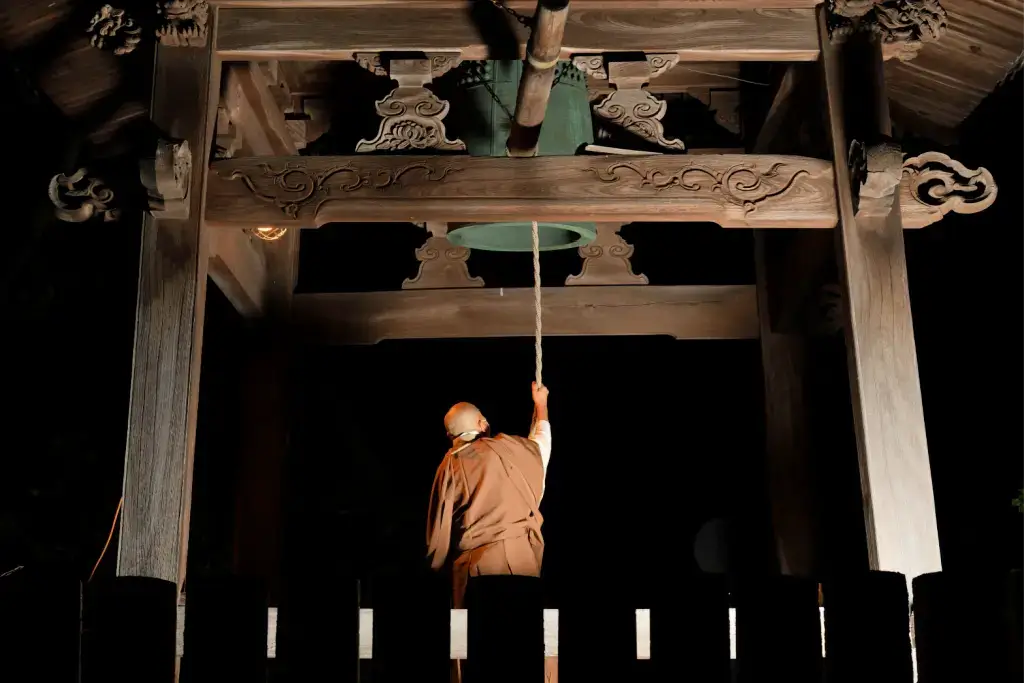
Ring in the New Year: The History of Joya no Kane
Joya no Kane is an important ritual during Japan’s annual Omisoka (New Year’s Eve) celebrations. Japan has practiced this ancient tradition for centuries, carrying a profound Buddhist philosophy.
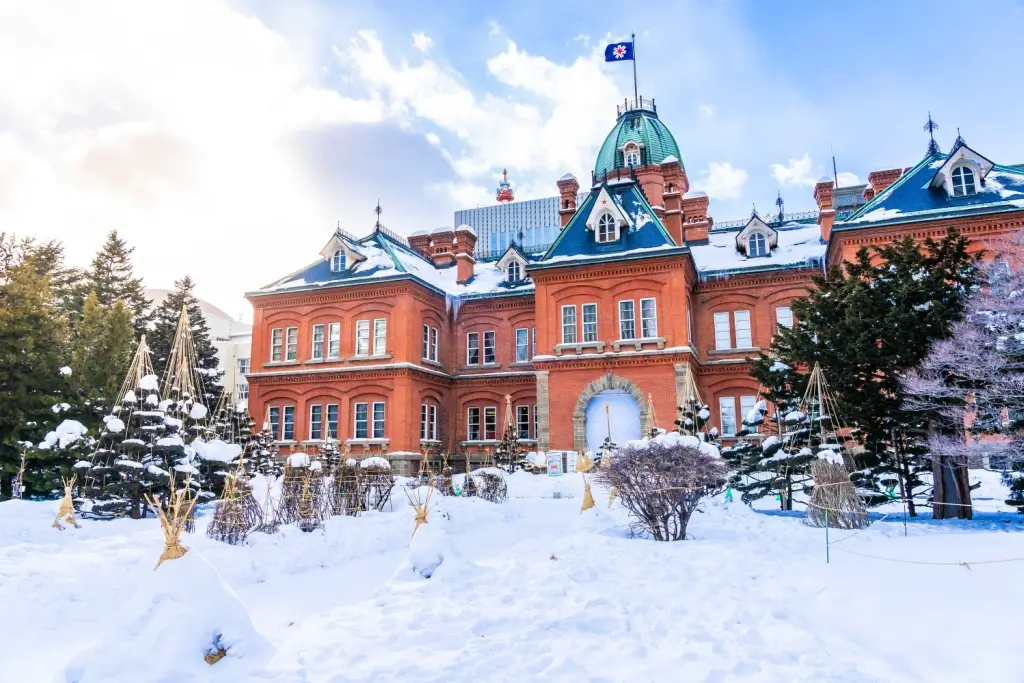
Hokkaido Island: The Best Place for the Winter Holidays!
Hokkaido is the northernmost island of Japan and the most significant island after Honshu. It is surrounded by the Sea of Japan, Okhotsk, and the Pacific Ocean. It is particularly busy during winter. Being so far north and surrounded by water, snowfall is guaranteed yearly.



